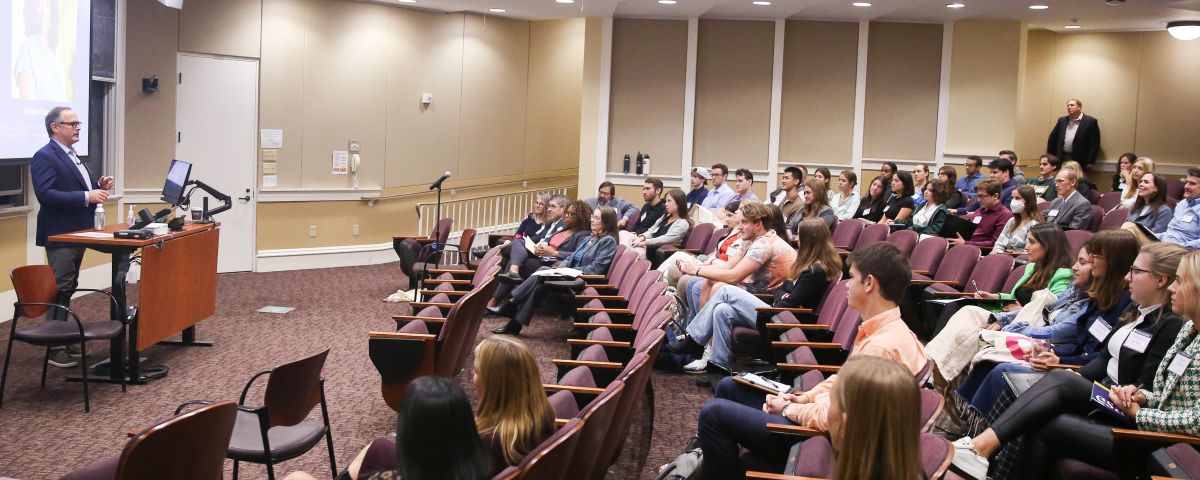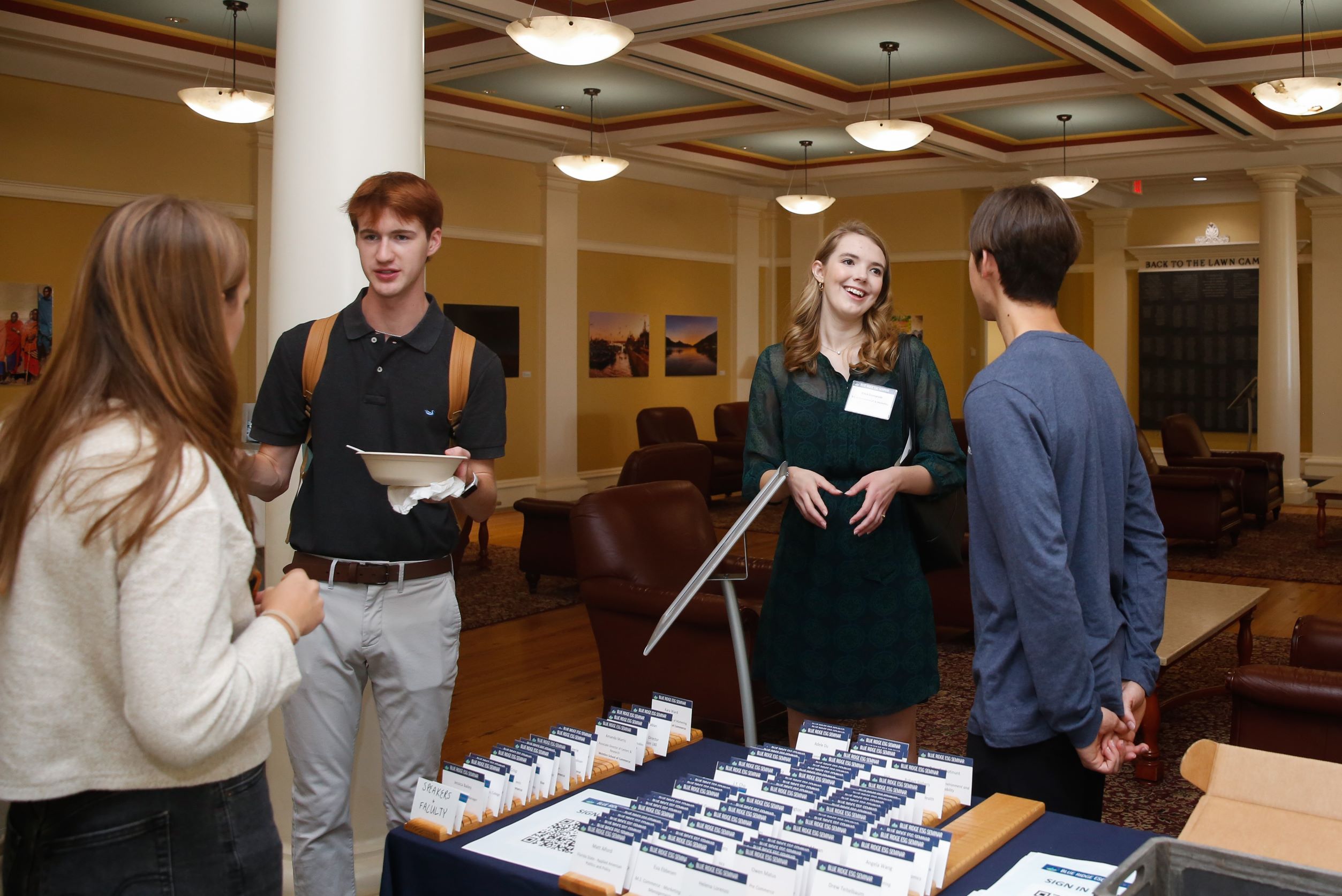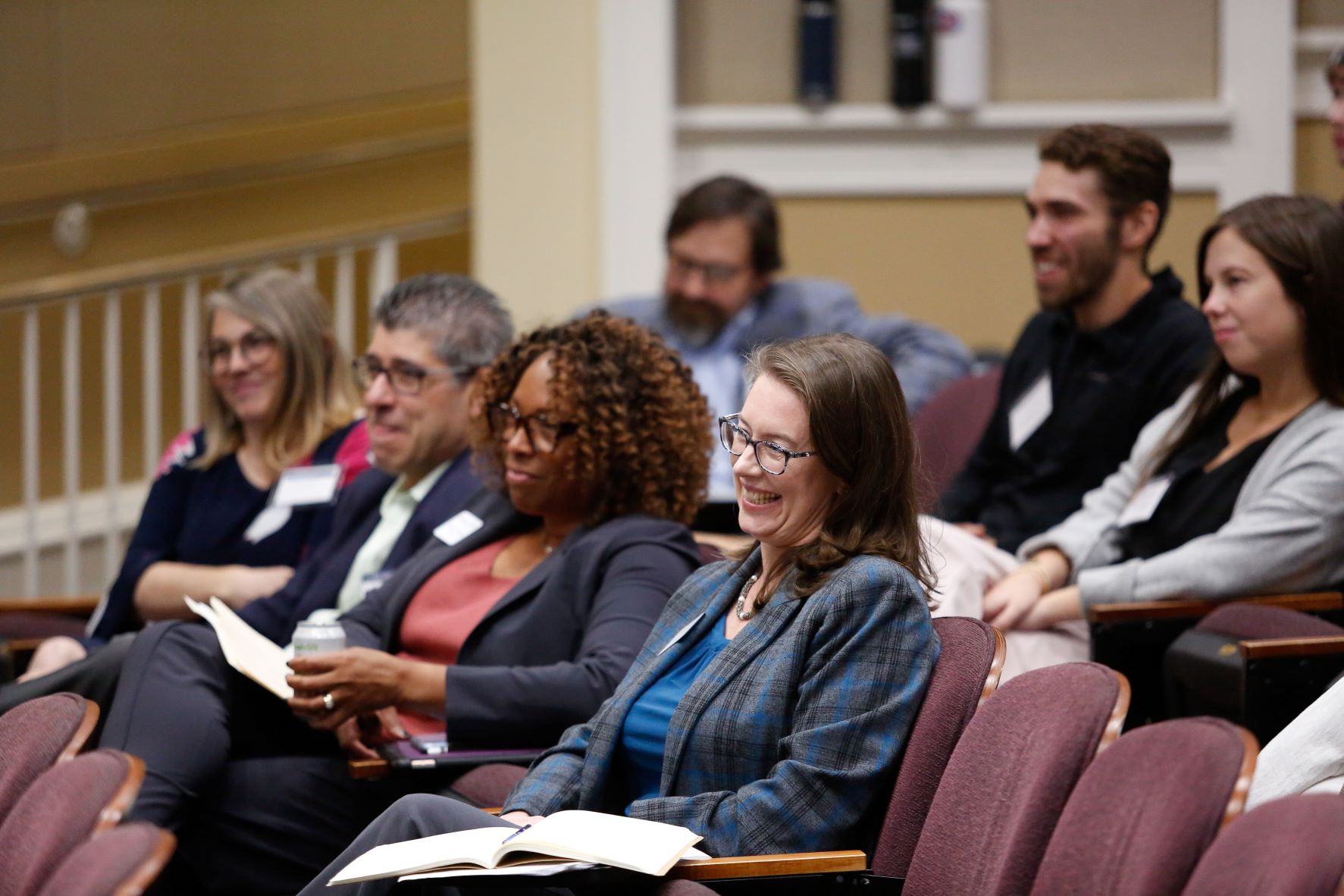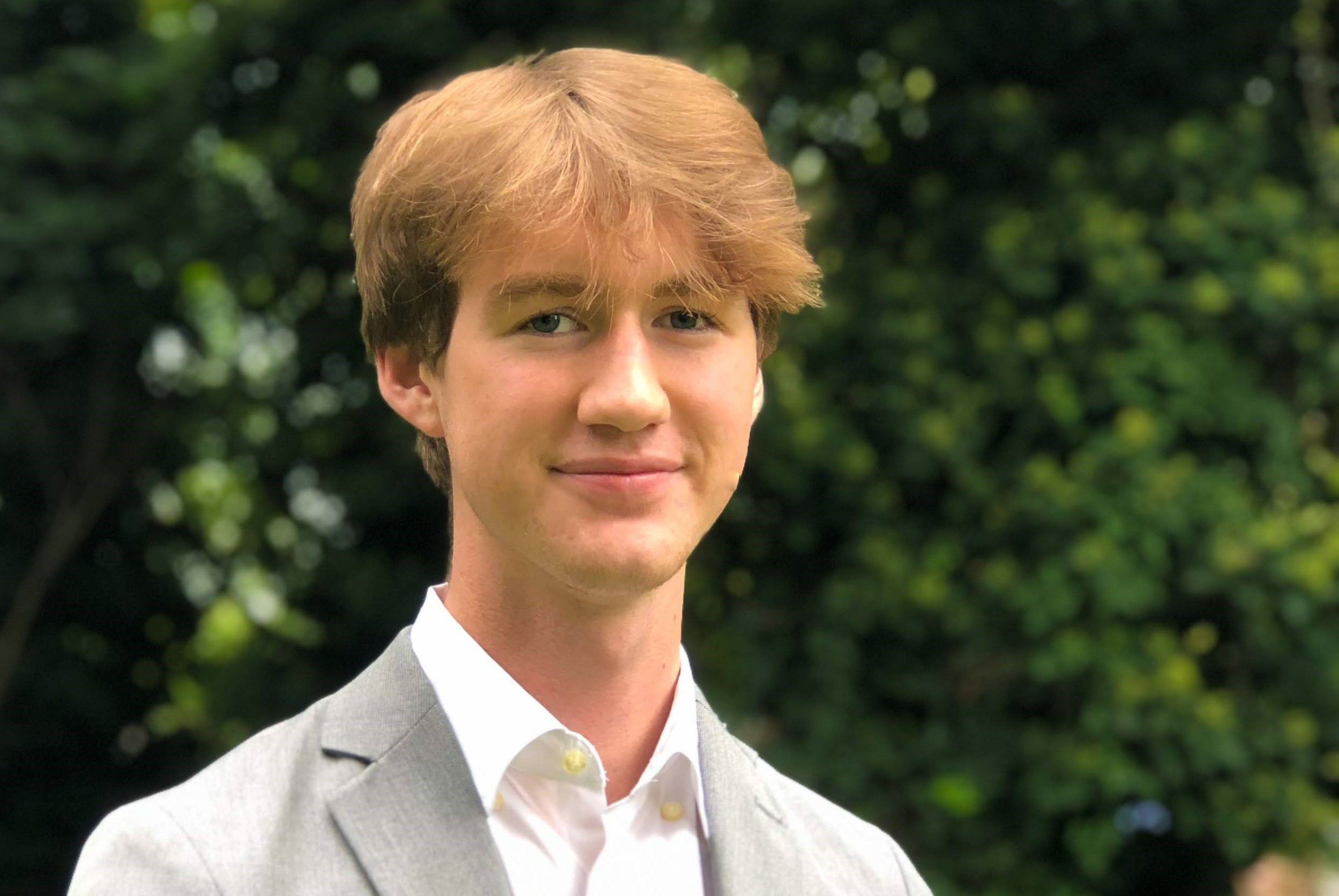
The McIntire School of Commerce hosted its first "Blue Ridge ESG Seminar" featuring speakers from an array of industries addressing the role of businesses in our society and the changing climate. The event was made possible in part by funds from the Office for Sustainability.
By 4-th year student Tucker Shelson
Originally slated to take place in January of this year, the Blue Ridge ESG Seminar has been in the works for quite some time. When I first started helping plan the event in the fall of 2021, there were still a lot of unanswered questions about funding, speakers, event space and the state of the COVID pandemic. Despite these initial challenges, Professor Kerrie Carfagno from the McIntire School of Commerce and the team of student organizers led by Katelyn Moulton persevered to bring the dynamic event to life on October 14.
“The seminar went very well. Students from a variety of backgrounds and majors were able to network with key players in the ESG space, during our Roots lunch and in between speaker sessions” Katelyn said. “They asked great questions, and I was so pleased with how engaged everyone was. I personally learned a lot about how ESG is incorporated into many different types of businesses, from clean energy to consulting. Understanding the importance of sustainability in evaluating business risk is critical, and this event showcased the breadth of stakeholders already involved in doing so. I would definitely call the seminar a success, and I hope it will become an annual event!”

ESG, which stands for Environmental, Social and (corporate) Governance, is an umbrella term that encompasses the efforts of a company to engage in more sustainable, equitable practices with the aim of benefiting all relevant stakeholders. As consumers become more socially and environmentally aware, companies must adapt to meet the standards of their customers while continuing to drive long-term value for shareholders.
The event kicked off with a Life Cycle Analysis workshop hosted by Professor Mark Whiteof McIntire, followed by a networking lunch, a welcome address from Nicole Thorne Jenkins, Dean of the School of Commerce, and a keynote address focusing on the role of ESG at the corporate level from Kurt Harrison, founder of the Global ESG and Sustainability Practice at Russell Reynolds Associates. Students then could select several breakout sessions to attend before reconvening as a group to hear from a few more speakers and closing remarks from Professor Carfagno. A full list of speakers can be accessed here, and the event’s complete schedule can be found here.
Topics ranged from learning how the parent company of Jack Daniels is trying to decrease their water and energy consumption with Alex Alvarez, Chief Sustainability Officer and Director of ESG at Brown-Forman, to hearing about investing in companies that seek to combat the adverse effects of climate change with Sandy Reisky, former chairman and CEO of Apex Clean Energy. Employers, such as EY and PWC, also attended the event to answer students’ questions and facilitate discussions about their firms’ sustainability-related practices.
With climate change posing an existential crisis to many companies, an emphasis on environmental sustainability is no longer optional for many firms. As regulators move to quell pollution and consumers become privier to the political stances of corporations, firms have never felt more pressure to conduct business with deference to ethical and environmental standards. Corporate leadership is directly beholden to shareholders, yet deciding to invest in environmental sustainability, inclusion and belonging initiatives, and social and political activism, can drive long-term shareholder value, an idea that several of the seminar’s speakers underscored.

With communities of color and low-income neighborhoods disproportionately affected by climate change, in particular by pollution levels and other company-created environmental hazards, it is incredibly important for firms to self-regulate their interactions with local communities and invest in all stakeholders, not just their shareholders. Ensuring our drinking water is clean, our air is not polluted and our fossil fuel consumption diminishes is essential to protecting some of the most vulnerable populations across the country. Unfortunately, with numerous gaps in regulation, it is incumbent upon firms to take action and set themselves up for long-term success in a rapidly changing environment.
One of UVA Sustainability’s areas of focus is “Discover,” which is the prioritization of academic experiences related to sustainability. Seeking to engage students interested in possible careers in sustainability while spreading information about the intersection of business and the environment, the Office for Sustainability generously allocated funding to ensure the seminar came to life and was free of charge for students to attend.
For more information about sustainability-related events and volunteer opportunities, visit our website or email [email protected]. And to learn more about career options related to sustainability, visit the University’s Career Center and browse opportunities in Handshake.

Tucker (he/him) is a 4th-year student majoring in Commerce and minoring in French. He is a Student Intern with the Office for Sustainability, working on the Green Living team which focuses on student engagement in dorm spaces as well as underclassmen outreach. Tucker is also a tour guide, a member of the Equity & Environment Fund’s Student Review Board, and an Intern at the UVA Office of Undergraduate Admission.
